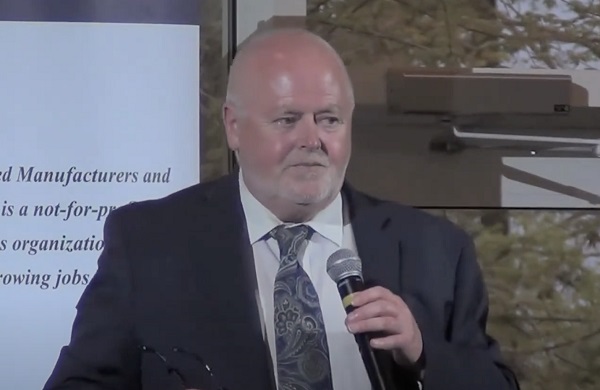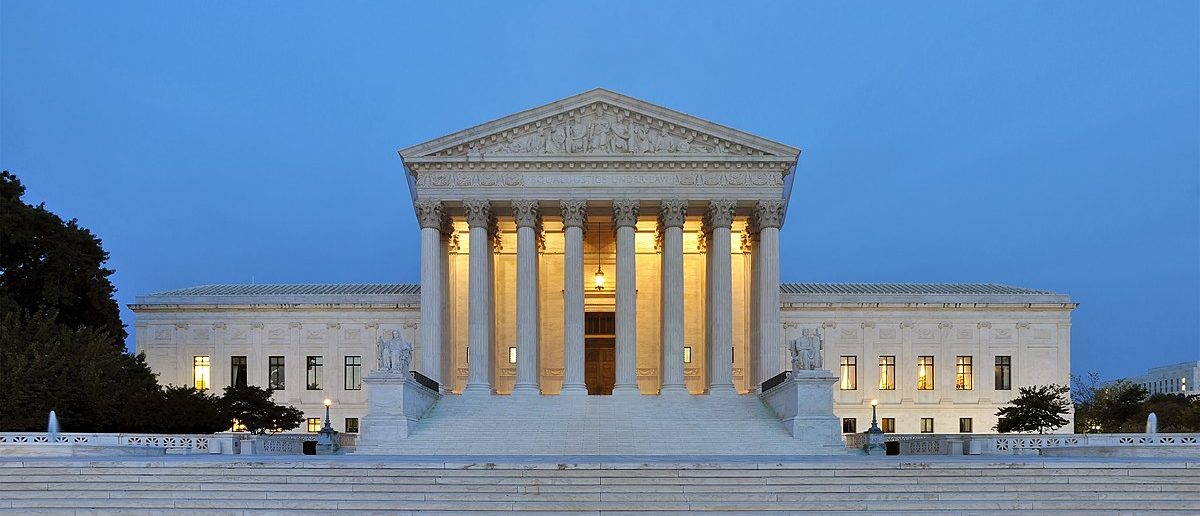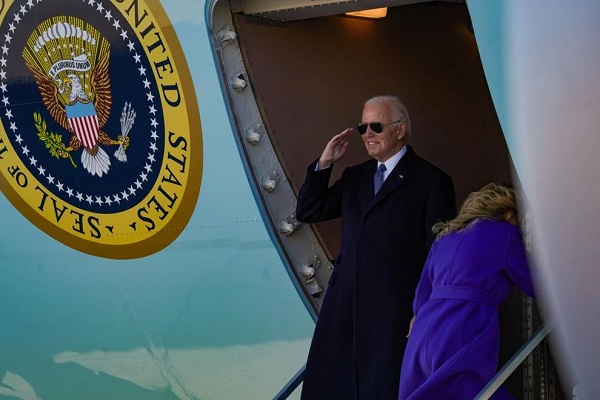Business
Former Canadian broadcast regulator warns against Conservative-backed internet bill

Peter Menzies served as CRTC vice-chair after an extensive career in the newspaper industry
From LifeSiteNews
‘By all means, ensure the Criminal Code is enforced, but do not, under any circumstances, put some puffed-up public servant in charge of patrolling the online world. The state has no business in the WiFi of the nation,’ former CRTC vice-chair Peter Menzies wrote.
One of the past vice-chairs of Canada’s official broadcast regulator, Canada’s Radio-Television Commission (CRTC), has sounded the alarm over recent Conservative-backed federal legislation working its way through the system which looks to severely regulate the internet under the appearance of “protecting children.”
Peter Menzies, who served as the CRTC’s vice-chair for a time after an extensive career in the newspaper industry, and who is not known for being very conservative, wrote in a recent blog post in The Hub that the “[s]tate has no business in the WiFi of the nation,” criticizing in particular Senate Bill S-210.
He specifically used his ink space to criticize the Conservative Party of Canada (CPC) and its leader Pierre Poilievre for supporting Bill S-210.
“The Conservatives, as we speak, are backers of Independent Senator Julie Miville-Dechene’s private member’s Bill S-210. Its intent, like so many pieces of legislation, is virtuous, as it is trying to protect children from access to online pornography. But the road to regulatory hell is paved with good intentions, and the legislation is so clumsily constructed as to pose significant threats to privacy and free expression,” wrote Menzies.
Currently before Canada’s House of Commons for review is Senate Bill S-210, “An Act to restrict young persons’ online access to sexually explicit material.” The bill passed its second reading in the House of Commons last December, with CPC MPs lambasting most Liberal Party MPs for voting against a bill designed to protect children from accessing online pornography.
The creator of the the non-governmental law, Miville-Dechêne, was appointed to the Senate by Prime Minister Justin Trudeau in 2018. It was passed by the Senate in April 2023.
S-210 would create a framework to make it an offense for any organization that makes available “sexually explicit material” to anyone under the age 18 for commercial purposes. Anyone breaking the new rules would be fined $250,000 for the first offense and up to $500,000 for any subsequent offenses.
However, professor Dr. Michael Geist, who has been an open critic of already passed Trudeau government online censorship bills C-18 and C-11, as well as the newly introduced “Online Harms” Bill C-63, has warned that S-210 is an “avalanche” of bad news despite its good intentions.
“Bill S-210 isn’t a slippery slope. It’s an avalanche: Court ordered site blocking that can include lawful content and mandated age verification using facial recognition to access search or social media overseen by CRTC. Conservative MPs voted for this?!” Geist posted recently on X.
Menzies observed that if the Conservatives genuinely “Want to give us back control of our lives and make us the freest people on earth, they could start by stepping back from their recent alliance with Big Government solutions and instead find ways to help individuals take control of their lives by managing what comes into their homes.”
He called S-210 “So clumsily constructed as to pose significant threats to privacy and free expression.”
Menzies warned that Bill S-210, despite its seemingly good intentions, could result in Canadians being forced to use government-issued IDs to access many different internet services.
Menzies wrote that in his view, it makes no sense that the CPC under Poilievre oppose Trudeau’s new Online Harms Act, or Bill C-63, yet support Bill S-210.
As for Bill C-63, it was introduced in the House of Commons on February 26 and was immediately blasted by constitutional experts as very troublesome.
The new law will further regulate the internet and will allow a new digital safety commission to conduct “secret commission hearings” against those found to have violated the new law, raising “serious concerns for the freedom of expression” of Canadians online, one constitutional lawyer warned LifeSiteNews.
The Liberals under Trudeau claim Bill C-63 will target certain cases of internet content removal, notably those involving child sexual abuse and pornography.
The reality is, that the federal government under Trudeau has gone all in on radical transgender ideology, including the so-called “transitioning” of minors, while at the same time introducing laws that on the surface, appear to be about helping children.
Under Trudeau, the federal government has given millions of taxpayer money to fund LGBT groups of various kinds and aggressively pushes a pro-LGBT agenda.
Trudeau gov’t needs to ‘leave legal internet’ content alone
Menzies observed that what needs to happen instead is for governments to “[l]eave legal content on the internet alone,” and instead empower “parents” to have more control over what can be viewed online.
“By all means, ensure the Criminal Code is enforced, but do not, under any circumstances, put some puffed-up public servant in charge of patrolling the online world. The state has no business in the WiFi of the nation,” he wrote.
“Second, empower parents and families with the equipment they need to control their household’s internet access as they see fit and work with the people who really understand technology to do so.”
The CPC under its leader Poilievre has clarified that Conservatives “do not support any measures that would allow the imposition of a digital ID or infringe on the privacy of adults and their freedom to access legal content online,” when it comes to Bill S-210 or another other future law.
Campaign Life Coalition recently warned that Bill C-63, or the Online Harms Act, will stifle free speech and crush pro-life activism.
Automotive
Supreme Court Delivers Blow To California EV Mandates


From the Daily Caller News Foundation
“The Supreme Court put to rest any question about whether fuel manufacturers have a right to challenge unlawful electric vehicle mandates”
The Supreme Court sided Friday with oil companies seeking to challenge California’s electric vehicle regulations.
In a 7-2 ruling, the court allowed energy producers to continue their lawsuit challenging the Environmental Protection Agency’s decision to approve California regulations that require manufacturing more electric vehicles.
“The government generally may not target a business or industry through stringent and allegedly unlawful regulation, and then evade the resulting lawsuits by claiming that the targets of its regulation should be locked out of court as unaffected bystanders,” Justice Brett Kavanaugh wrote in the majority opinion. “In light of this Court’s precedents and the evidence before the Court of Appeals, the fuel producers established Article III standing to challenge EPA’s approval of the California regulations.”
Kavanaugh noted that “EPA has repeatedly altered its legal position on whether the Clean Air Act authorizes California regulations targeting greenhouse-gas emissions from new motor vehicles” between Presidential administrations.
“This case involves California’s 2012 request for EPA approval of new California regulations,” he wrote. “As relevant here, those regulations generally require automakers (i) to limit average greenhouse-gas emissions across their fleets of new motor vehicles sold in the State and (ii) to manufacture a certain percentage of electric vehicles as part of their vehicle fleets.”
The D.C. Circuit Court of Appeals previously rejected the challenge, finding the producers lacked standing to sue.
“The Supreme Court put to rest any question about whether fuel manufacturers have a right to challenge unlawful electric vehicle mandates,” American Fuel & Petrochemical Manufacturers (AFPM) President and CEO Chet Thompson said in a statement.
“California’s EV mandates are unlawful and bad for our country,” he said. “Congress did not give California special authority to regulate greenhouse gases, mandate electric vehicles or ban new gas car sales—all of which the state has attempted to do through its intentional misreading of statute.”
Business
Ottawa has spent nearly $18 billion settling Indigenous ‘specific claims’ since 2015

From the Fraser Institute
By Tom Flanagan
Since 2015, the federal government has paid nearly $18 billion settling an increasing number of ‘specific claims’ by First Nations, including more than $7 billion last year alone, finds a new study released today by the Fraser Institute, an independent, non-partisan Canadian public policy think tank.
“Specific claims are for past treaty breaches, and as such, their number should be finite. But instead of declining over time, the number of claims keeps growing as lucrative settlements are reached, which in turn prompts even more claims,” said Tom Flanagan, Fraser Institute senior fellow, professor emeritus of political science at the University of Calgary and author of Specific Claims—an Out-of-Control Program.
The study reveals details about “specific claims,” which began in 1974 and are filed by First Nations who claim that Canadian governments—past or present—violated the Indian Act or historic treaty agreements, such as when governments purchased reserve land for railway lines or hydro projects. Most “specific claims” date back 100 years or more. Specific claims are contrasted with comprehensive claims, which arise from the absence of a treaty.
Crucially, the number of specific claims and the value of the settlement paid out have increased dramatically since 2015.
In 2015/16, 11 ‘specific claims’ were filed with the federal government, and the total value of the settlements was $27 million (in 2024 dollars, to adjust for inflation). The number of claims increased virtually every year since so that by 2024/25, 69 ‘specific claims’ were filed, and the value of the settlements in 2024/25 was $7.061 billion. All told, from 2015/16 to 2024/25, the value of all ‘specific claims’ settlements was $17.9 billion (inflation adjusted).
“First Nations have had 50 years to study their history, looking for violations of treaty and legislation. That is more than enough time for the discovery of legitimate grievances,” Flanagan said.
“Ottawa should set a deadline for filing specific claims so that the government and First Nations leaders can focus instead on programs that would do more to improve the living standards and prosperity for both current and future Indigenous peoples.”

Specific Claims: An Out-of-Control Program
- Specific claims are based on the government’s alleged failure to abide by provisions of the Indian Act or a treaty.
- The federal government began to entertain such claims in 1974. The number and value of claims increased gradually until 2017, when both started to rise at an extraordinary rate.
- In fiscal year 2024/25, the government settled 69 claims for an astonishing total of $7.1 billion dollars.
- The evidence suggests at least two causes for this sudden acceleration. One was the new approach of Justin Trudeau’s Liberal government toward settling Indigenous claims, an approach adopted in 2015 and formalized by Minister of Justice Jodi Wilson-Raybould’s 2019 practice directive. Under the new policy, the Department of Justice was instructed to negotiate rather than litigate claims.
- Another factor was the recognition, beginning around 2017, of “cows and plows” claims based on the allegation that agricultural assistance promised in early treaties—seed grain, cattle, agricultural implements—never arrived or was of poor quality.
- The specific-claims process should be terminated. Fifty years is long enough to discover legitimate grievances.
- The government should announce a short but reasonable period, say three years, for new claims to be submitted. Claims that have already been submitted should be processed, but with more rigorous instructions to the Department of Justice for legal scrutiny.
- The government should also require more transparency about what happens to these settlements. At present, much of the revenue paid out disappears into First Nations’ “settlement trusts”, for which there is no public disclosure.
-

 Daily Caller1 day ago
Daily Caller1 day agoUnanimous Supreme Court Ruling Inspires Hope For Future Energy Project Permitting
-

 Alberta2 days ago
Alberta2 days agoUnified message for Ottawa: Premier Danielle Smith and Premier Scott Moe call for change to federal policies
-

 espionage22 hours ago
espionage22 hours agoFBI Buried ‘Warning’ Intel on CCP Plot to Elect Biden Using TikTok, Fake IDs, CCP Sympathizers and PRC Students—Grassley Probes Withdrawal
-

 Censorship Industrial Complex2 days ago
Censorship Industrial Complex2 days agoJordan Peterson reveals DEI ‘expert’ serving as his ‘re-education coach’ for opposing LGBT agenda
-

 Agriculture22 hours ago
Agriculture22 hours agoUnstung Heroes: Canada’s Honey Bees are not Disappearing – They’re Thriving
-

 espionage1 day ago
espionage1 day agoFrom Sidewinder to P.E.I.: Are Canada’s Political Elites Benefiting from Beijing’s Real Estate Reach?
-

 International1 day ago
International1 day agoJudiciary explores accountability options over Biden decline ‘coverup’
-

 Economy2 days ago
Economy2 days agoOttawa’s muddy energy policy leaves more questions than answers




